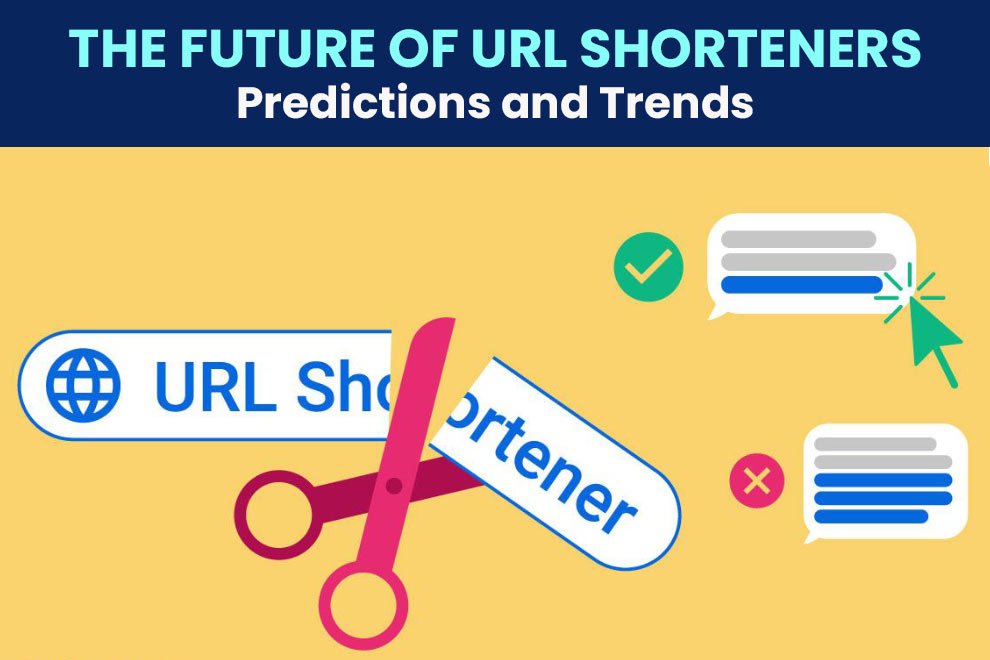In the digital realm, the effectiveness and ease of link shorteners have cemented their place in online marketing and social media strategies. Condensing lengthy URLs into short links has transformed how we distribute information online. However, with technological advancements and evolving user preferences, it’s essential to anticipate the future trends of link shorteners. In this article, we delve into the projected developments and emerging functionalities in the realm of link shorteners.
1. Enhanced Data Analytics for Deeper Understanding:
A key trend that is set to influence the landscape of link shorteners is a focus on analytics capabilities. With more and more businesses aiming for improved decision-making based on data insights, a URL shortener offers a wide range of advanced analytical tools to anticipate progress in tracking functionalities that extend beyond click-through rates and engagement metrics. We predict integration with platforms such as Google Analytics to provide marketers with a unified perspective on their campaign effectiveness.
2. Dynamic Link Routing for Enhanced Personalization:
One interesting trend in URL shortening involves the emergence of links that provide unique experiences based on individual user actions. By using AI algorithms and machine learning, these link-routing systems can direct users to landing pages or content tailored to their interests. This customization feature enhances user engagement and allows businesses to deliver targeted messages.
3. QR Code Integration for Offline Accessibility:
With marketing strategies complementing user efforts, seamlessly integrating QR codes into shortened URLs is becoming increasingly important. Users can easily access offers or exclusive content by scanning QR codes with their smartphone cameras, connecting them directly to printed materials or physical products through shortened URLs. This integration presents an opportunity for businesses in various sectors to bridge the online and offline worlds.
4. Enhanced Security Measures:
Given the growing number of cyber threats emerging today, ensuring the security of shortened links is an important consideration. To address risks like phishing attacks and malicious redirects, URL-shortening services must implement robust security protocols. These measures may involve multiple layers of authentication, screening links before redirection, and real-time monitoring for potential threats. When user safety takes precedence, URL shortening services can enhance trust and confidence for both businesses and users.
5. Voice Assistant Integration:
Given the rising popularity of voice-controlled technologies like speakers and digital assistants, linking URL shorteners with voice commands seems poised to be an upcoming trend. Imagine a scenario where a person requests information about a product from their assistant: an effectively integrated system could swiftly create a shortened link granting quick access to detailed product information or e-commerce sites.
6. Multi-Channel Marketing Integration:
With more and more businesses expanding their marketing outreach across various platforms, incorporating URL shorteners into multiple channels will become essential. Envision embedding shortened links in social media posts, email campaigns, blog content, and digital advertisements. Through this integration, marketers can easily monitor the performance of every channel and refine their strategies accordingly. This seamless link-tracking feature spanning various marketing avenues will offer a view of the customer journey and enable businesses to make informed decisions for successful campaigns.
7. Social Media Sharing Functionality:
In today’s interconnected social media-driven landscape, URL-shortening services will remain pivotal in facilitating effortless sharing and widespread distribution of content. The future of URL shortening services seems to be heading towards improving social sharing options by introducing features such as messages, customizable thumbnails, and integrated scheduling for posts. These enhancements will enable users to share shortened links on various social media platforms while retaining control over their branding and messaging.
In Conclusion
To sum up, as URL shorteners progress and adapt to evolving market needs, several significant trends are expected to influence their development. From enhanced analytics tools offering insights into campaign performance to the incorporation of link routing for personalized user experiences, these trends hold promising opportunities for marketers and businesses alike. The integration of QR codes for accessibility and stricter security measures further enhance the functionality and efficiency of URL shorteners across different settings. Looking ahead in the changing landscape, it is crucial for professionals in all sectors to stay abreast of the emerging trends related to these streamlined tools.
Also Read: Link Building Strategies for SEO: Boost Your Website’s Visibility










